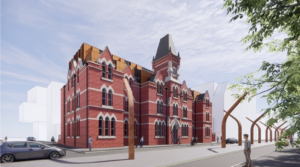Over 50% of renters believe rental market is either ‘unfair’ or ‘very unfair’
 Over half (53%) of the population think the current private rented market is either unfair or very unfair, according to a survey conducted by think tank the Institute for Public Policy and Research (IPRR).
Over half (53%) of the population think the current private rented market is either unfair or very unfair, according to a survey conducted by think tank the Institute for Public Policy and Research (IPRR).
As part of their research, IPRR conducted focus groups with both tenants and landlords to try and understand the issues facing both whilst looking for realistic solutions.
The private rented sector has grown substantially over the past two decades. It is now home to 20% of households (4.7 million). Many more people now expect to live in the private rented sector for longer, which includes 1.7 million households containing nearly three million children.
A key worry of tenants is how insecure tenures are. Around one in 10 tenancies which come to an end do so as a landlord has terminated them, typically through a no-fault eviction.
The biggest reason for a no-fault eviction is to enable a landlord to sell the property or take it back into their own use. Tenancies ended by landlords were the biggest cause of homelessness acceptances in England in 2017, accounting for 28% (16,320) of all local authority homelessness acceptances.
Their survey also confirmed that renting has become a crisis of affordability for many. It found that in 62% of local authorities the median private rent would be unaffordable to those on low incomes and in 52% to those on middle incomes. In all but one local authority, a person earning minimum wage would find the average private rented home unaffordable.
Private tenants also lack political agency and have weak representation in the debates that affect them, according to the survey, with the UK lacking an effective system of tenants’ unions which can represent tenants’ interests, both politically and in disputes with their landlords.
A tenants’ union was mooted by Labour’s shadow housing secretary John Healey announced at their party conference in September, when he said a £20m pot would be made available for new unions in England.
Finally, the quality of housing was a major complaint of tenants during the focus groups, with 27% of homes failing to meet the Decent Homes Standard.
Landlords said they would like to see welfare and legal reforms as well as reductions to taxation on private landlords. Landlords also suggested that the key risks to their investments were long void periods plus rising interest rates
Responding to the report, Meera Chindooroy, policy and public affairs manager at the National Landlords Association (NLA), told NewStart: ‘We acknowledge that the private rented sector (PRS) is far from perfect and landlords have a part to play in improving the sector.
‘However, as the report highlights, landlords also face a challenging environment, with piecemeal and at times contradictory Government policy, and a lack of confidence in regaining possession even when the tenant is in breach of their agreement.
‘The PRS is facing many issues including a lack of supply, increasing costs for landlords to run their business, and frozen benefit rates no longer fully covering rents.
‘We have consistently pushed for the Government to take a more strategic and joined-up approach to PRS policy, as well as encourage more homes of all tenures to be built where they are needed most, and unfreeze the housing benefit cap so that tenants can access the homes they need.’












